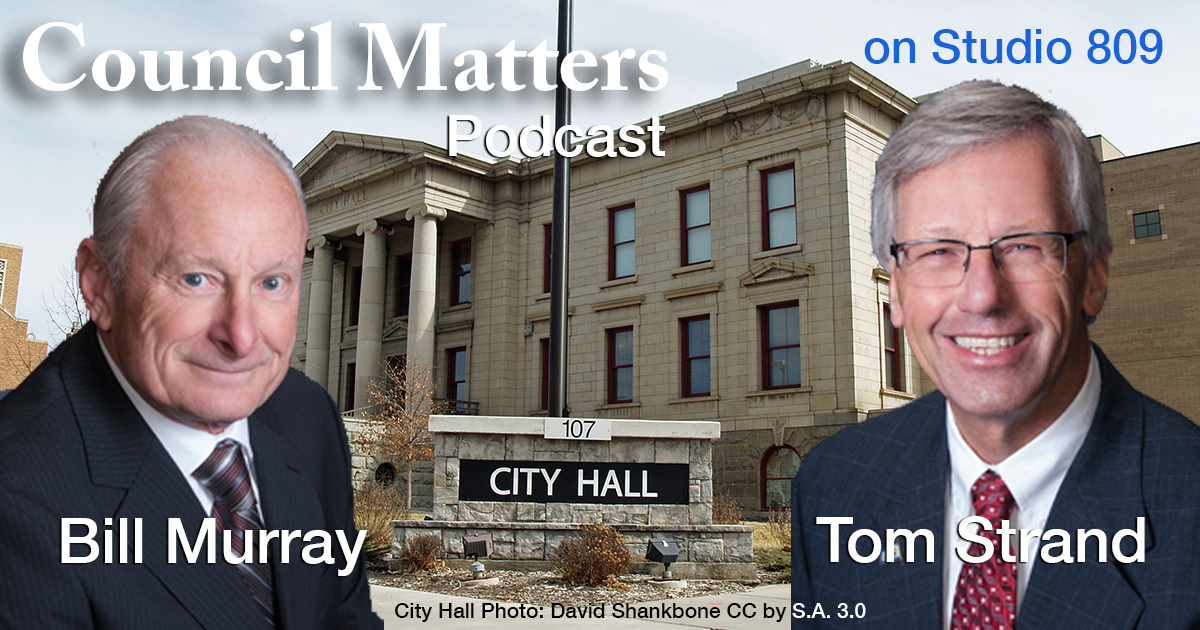Will a “Riparian Ordinance” protect streams from contamination by homeless campers? Will the ACLU have a problem with it? Colorado Springs City Councilors Bill Murray and Tom Strand explore what can be done about homeless camps. ALSO: the average annual wage in town is $46K. Is that a living wage?
(episode 73, recorded 2018 04 20)
Podcast: Play in new window | Download | Embed


Thank you, Councilors Murray and Strand for these informative and transparent sessions that are so crucial to the
residents of Colorado Springs. And no issue is more pressing than that of homelessness and our city’s response to it.
Kudos to Councilman Murray for being proactive and asking all of the right questions. Please do a podcast about managed homeless camps soon. We could incorporate ideas from the many successful homeless villages across the country.
Now please consider the following thoughts:
If the Riparian Ordinance is passed and if it is enforced, what will the punishment be for homeless people with no money? Will it be added to their criminal record and at some point help lead to incarceration? Or would it be legal and/or wise to have them do community service instead? If it is passed and enforced, how much will it really help the water quality of the streams (or the taxpayers who have seen their once beautiful parks being turned into dumping grounds) if no bathroom facilities are made available to the homeless. If it is passed and enforced, how many more wasted tax dollars will be spent on the counterproductive status quo of trying to balance the rights (not best welfare) of the homeless with the rights of the taxpayers, especially those taxpayers that are so negatively affected by the criminal conduct of some homeless people. Also, there seems to be growing numbers of taxpayers who feel that the city government has sacrificed certain local areas to the homeless problem, and the city is content to provide token gestures (wasting more tax dollars) than actually solving the (the very solvable) problem of homelessness for far less money than is currently being used to control the symptoms.
An estimated $58,000 annually is spent per individual experiencing homelessness (CSPD, CSFD, Neighborhood Services, Parks, Streets, Municipal Court, hospitals, etc.) according to Andy Phelps, the Coordinator of Homelessness Response and Prevention. That same figure is used on the Homeless Outreach Team’s website, and was also published in a Feb. 5, 2014 Independent article under the title “Mayor Unveils Homeless Plan”. So am I right in thinking that about 500 unsheltered individuals times $58,000 is $29,000,000 annually in taxes for the disastrous status quo? However, those estimates probably do not include donations nor do they include lost revenues and sales tax as local businesses are negatively affected by vagrancy and panhandling. Then there are the human costs as many homeless individuals continue to suffer in deplorable conditions while nearby taxpayers are increasingly worried about their own safety and welfare with so many illegal fires, thefts, discarded needles and human feces in yards and parks). While I agree that the status of homelessness should not be criminalized, criminal conduct of anyone including homeless individuals should be. However, a growing public perception is that the city is so worried about homeless rights now, that some homeless people can undermine our neighborhoods and threaten our safety with little or no meaningful penalty because the city does not distinguish between homelessness status and that of conduct
And if the expectations that enough permanent supported housing will not be available for years than we need to end the insanity now. Let’s start planning for managed villages for the unsheltered homeless that will provide all of the necessities for survival as well supportive services as 67% of them have serious mental issues (according to the 2018 PIT data). This will also save tens of millions in taxpayer dollars annually. Of course, there will be some or possibly many homeless people that will not want to live in a village because they are homeless by choice so then push factors like camping bans near water or anywhere must be passed and consistently enforced.
Thank you for your time and consideration.